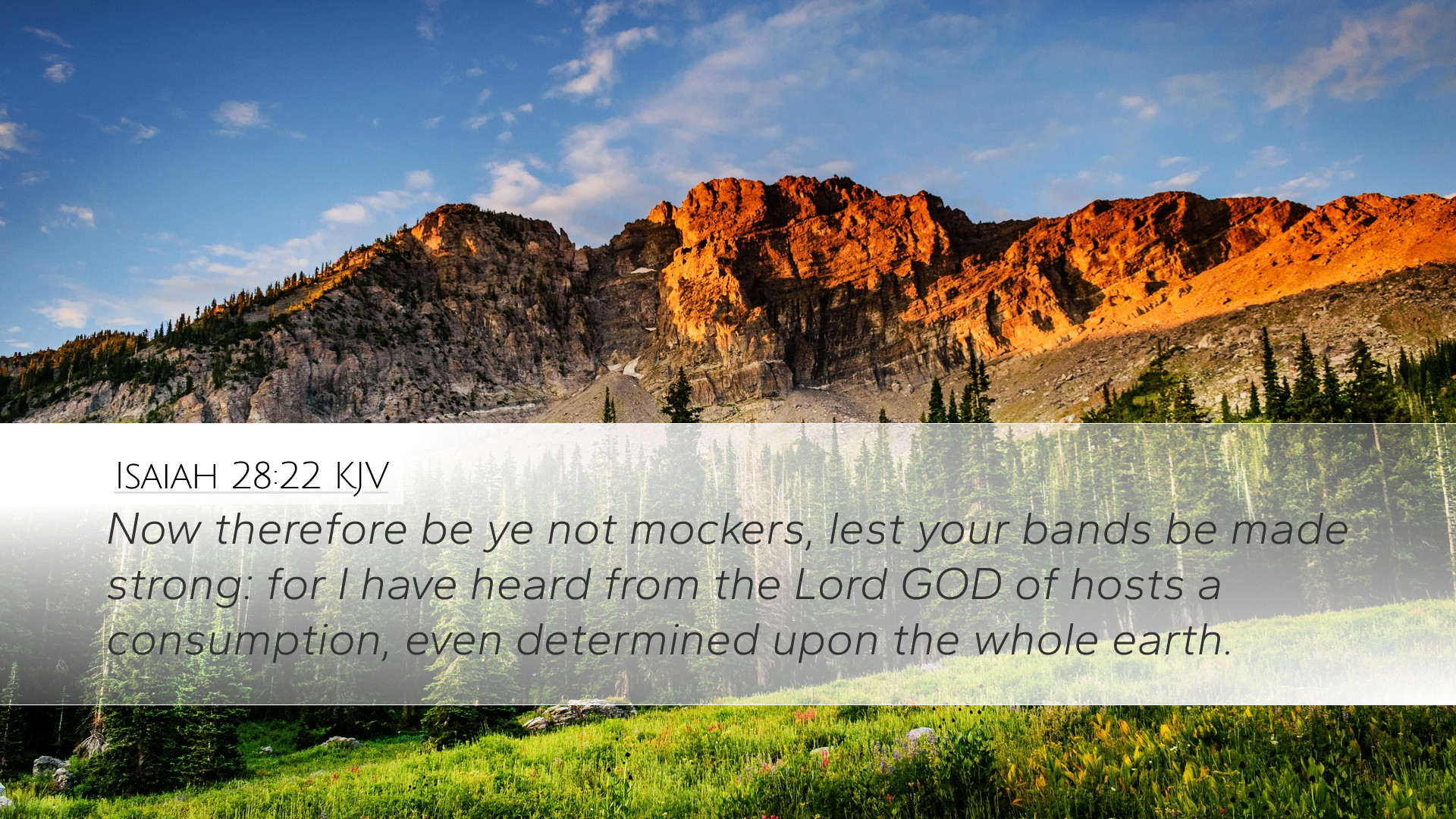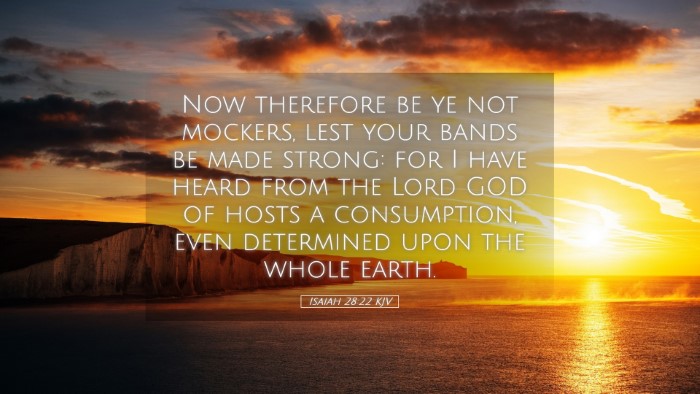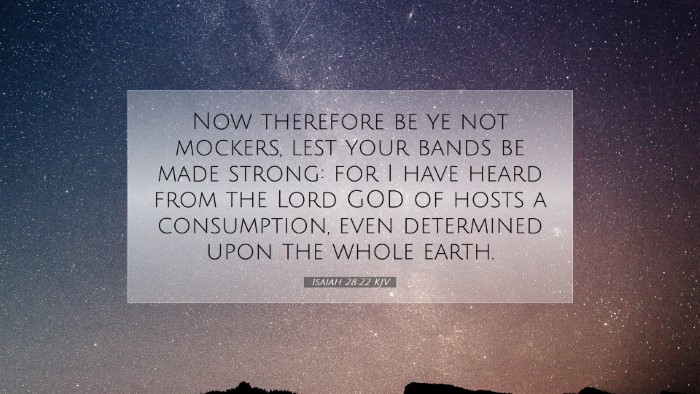Commentary on Isaiah 28:22
Isaiah 28:22 states: "Now therefore be ye not mockers, lest your bands be made strong: for I have heard from the Lord God of hosts a consumption, even determined upon the whole earth." This verse serves as a stern warning against complacency and mocking the word of God. The context of this verse involves a prophetic declaration regarding judgment and the consequences of rejecting divine authority.
Contextual Background
Isaiah prophesied during a tumultuous time in Israel’s history, marked by political intrigue, spiritual decay, and impending judgment. The Northern Kingdom of Israel was on the brink of destruction, and the Southern Kingdom of Judah faced imminent threats from Assyria. In this chapter, Isaiah addresses the pride and folly of Ephraim, likening their pomp to a fading flower.
Thematic Insights
-
Judgment and Comfort:
Isaiah oscillates between messages of judgment and the hope of restoration. The warning in verse 22 emerges from a divine concern that those who mock God’s word would face severe consequences.
-
Spiritual Complacency:
This verse explicitly warns against the dangers of spiritual mockery and pride. When the people of God scoff at His warnings, they position themselves against the very truth that could lead to their salvation.
-
The Certainty of Fulfillment:
The phrase "I have heard from the Lord" emphasizes the authority behind the message. That which God declares will surely come to pass—this is a core principle of prophetic literature.
Commentary Insights
Matthew Henry
Henry presents this verse as a reflection on the futility of scoffing at God's warnings. He cautions that such arrogance can lead to a hardened heart, incapable of receiving the truth. The implication is that divine retribution is inevitable and underscores the importance of heeding God's word with humility.
Henry identifies the "bands made strong" as a metaphor for the chains of judgment that will bind those who do not heed the warning. He reinforces the idea that spiritual obstinacy results in destruction, drawing from historical examples of nations that faced Divine judgment due to their refusal to listen.
Albert Barnes
Barnes offers a detailed exegesis of "bands" in this context. He states that these represent the fetters of judgment that will be laid upon those who persist in mocking God. This imagery serves not only as a warning but also as a prophecy of impending doom that awaited those who took the prophecy lightly.
Furthermore, Barnes emphasizes the phrase "a consumption, even determined upon the whole earth." Here, he underlines the scope of God’s judgment as extensive, indicating that the consequences of apostasy are not localized but can affect the broader world. Barnes urges the reader to consider the seriousness of their spiritual condition and the collective impact of mockery against the Divine.
Adam Clarke
Clarke interprets this verse in light of the covenant relationship between God and His people. He notes that mockery often arises from a lack of understanding and awareness of God's seriousness. Clarke articulates that God’s voice can be specific and immediate, warning against the dangers that accompany arrogance and disbelief.
Moreover, Clarke reflects on the societal implications of this verse, arguing that communities that honor or dismiss divine warnings will experience proportional consequences based on their actions. He encourages readers to reflect on their own lives and communities, assessing whether they align with God’s word or find themselves in positions of mockery and resistance.
Practical Applications
-
Vigilance Against Complacency:
Believers must remain watchful and responsive to God’s voice, lest they fall into patterns of defiance or mockery against the wisdom imparted through scripture.
-
Encouragement to Heed Warnings:
This verse serves as an exhortation to adhere closely to God's commands and warnings, recognizing the gravity of ignoring divine instruction.
-
Contemplation on Spiritual Life:
Church leaders, pastors, and theologians should consider the implications of their teaching and preaching. Engaging with the text of Isaiah encourages humility in proclaiming the word of God.
Conclusion
Isaiah 28:22 carries a significant weight for contemporary believers and leaders. It stands as a dire reminder that treading lightly with God’s word is not a trivial matter. The verse encapsulates the reality of divine judgment intertwined with the grace offered through understanding and accepting God’s truth. For pastors, theologians, and congregants alike, let this be a call not to mock but to heed, not to stand defiantly but to kneel in supplication and repentance, recognizing the sacredness of God’s word as both a warning and a promise of hope.


